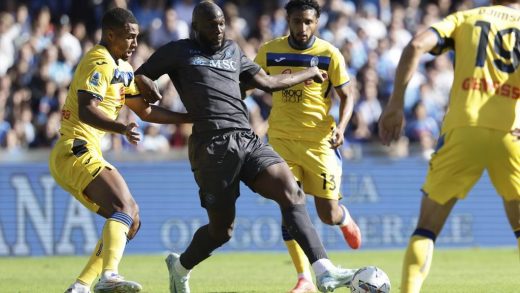
Calling beer ‘craft’ in New Zealand is about as meaningful as calling a petrol stop sandwich ‘gourmet’, according to people in the craft beer industry, so why label it at all? Sinead Gill reports.
Back in the 1980s, a craft beer meant something to the few New Zealanders who drank it.
Independent labels like Mac’s, brewing out of Nelson, were seen as a middle finger to the corporate beer duopoly – Lions and DB – which over time had gobbled up the loyalty of individual pubs and patrons alike.
By 2021, the craft beer market made up 18% of supermarket beer sales in New Zealand.
There are nearly 200 independent breweries competing with three beer conglomerates, the latter being Lions and DB (who together make up 83% of the brewing market) and Asahi.
The more mainstream craft beer becomes, and the more labels are swallowed by corporations, is it possible for any one place to call itself the Craft Beer Capital of NZ, as Wellington does?
Queue the hipsters
Mac’s succumbed to the allure of Lions in 1999. Articles at the time explained how owner Terry McCashin had spent a year with zero sales growth, but with a cash injection from Lions, could hire more staff and expand production.
He couldn’t have known that in less than a decade the label would no longer be produced in Nelson – the home of hops in New Zealand.
Nelson Mail
Terry McCashin, left, with then-Prime Minister Rob Muldoon holding a handle of Mac’s beer at the opening of a brewhouse in 1981.
Nor could anyone predict that in the 2000s, Kiwis would adopt the “hipster” movement from America, which cherished independence above all else.
The ethos of a hipster – much like that of craft beer – was rooted in capturing the authenticity some felt was lost to corporations.
A hipster didn’t want to just buy a product, but an idea. With craft beer that idea was of an artisan huddled over a vat, beholden to no-one but the passionate patrons who supported them.
This legacy was so ingrained in craft beer’s explosion in popularity in the early 2010s that nearly every brewer interviewed by Stuff for this article insisted, unprompted, their patrons weren’t “just hipsters”.
Craft brewing, once the domain of Nelson-Tasman region, was reborn when brewers at Garage Project, which began on the Kāpiti Coast, decided to bring brewing back to Wellington city in 2011.
“When we started, Wellington was definitely the capital of craft beer in terms of consumption,” said co-founder Jos Ruffell.
He said other microbrewery and taproom combos followed suit, and between 2013 and 2016 the growth was “enormous”.
“It’s easing now. People realise it’s a tough market and there’s only so much space on supermarket shelves.”
Ruffell said the strategy of opening a brewery people could visit and drink at proved popular, but eventually the market met saturation.
“Better to go somewhere where there isn’t one and start up a local … there’s been huge growth in the South Island.”
Monique Ford/Stuff
Jos Ruffell said the decision to stop calling Garage Project “craft beer” didn’t change the taste. File photo.
At the taprooms, people could relish in the imagined nostalgia of having a first degree relationship with the people behind the beer. Each glass became an investment.
With a boom in craft beer’s popularity came the need for corporate brands to produce their own. But the taproom intimacy was one large corporations struggled to create organically.
Not for lack of trying or success, though.
While they bought a few big names, like Emerson’s in Dunedin in 2012 and Tūatara in Wellington in 2017, some “faux labels” emerged, Ruffell said.
Ruffell said it diluted the meaning of craft beer as his team knew it, and prompted Garage Project to drop the term from their cans.
Boundary Road or BRB craft beers were one of them. He said them describing themselves as being “nestled in the foothills” of Hunua Ranges “invokes the craft beer vibe, but it’s just the same place they brew Asahi”.
On social media, BRB say they are run by an “independently minded” group of enthusiasts, and no mention of ownership is on their website. Only a list of brands section on Asahi’s website made a connection between the labels.
Asahi did not respond to a request for comment.
So who is independent?
Brewer Simon Bretherton was part of the fiercely independent Christchurch-based team at Cassels & Sons. He’s reluctant to write off the corporate-owned brands as knock-offs.
“Behind [the brands] are passionate people who work very hard,” he said.
ALDEN WILLIAMS/Stuff
Cassels & Sons Brewing head brewer Simon Bretherton says the goal is simply to brew good beer.
However, he compared buying independent or corporate beer to the decision to buy food at a supermarket or a farmers market.
“Many people like and prefer to know what they enjoy and experience has some sort of story and credibility behind them. That it’s not faceless,” he said.
The capital and influence behind corporations could be the difference between obscurity and being on a supermarket shelf. Although Cassels & Sons was awarded the best stout in the world in 2022 – beating Guinness – they weren’t distributed all over the world.
What kept Cassels & Sons at a safe distance from corporate ownership was that its founder, the late Alistair Cassell, had land and money behind him.
The brewery could expand without the need for external cash injections, Bretherton said.
“It was always [Alistair’s] vision to leave a legacy, something for his family. The next generation.”
He said “brewing good beer that people enjoy” was the goal, regardless of who was behind the brew. He said if they dropped the ‘craft beer’ label tomorrow, it wouldn’t change their mission.
There is no one definitive list of every beer brewery in New Zealand, but Michael Donaldson, owner and editor of Pursuit of Hoppiness, had a go in October.
He counted 206 brew brands – excluding the likes of Mac’s or Boundary Road, which no longer had their own brewery – though noted the number could change depending on the day you counted.
Central Wellington had 13, but Wellington as a region had 24. Collectively, Auckland had 46, and Canterbury had 21.
Donaldson didn’t think it mattered which were calling themselves craft beer, saying it was “like putting “gourmet” in front of cabinet food” or “calling coffee at a service station “barista made”.” Ultimately, it signalled to consumers that they were in for an adventurous drink.
supplied/Nelson Mail
Michael Donaldson, beer enthusiast and owner of Pursuit of Hoppiness, said people could judge for themselves which craft beer was the real deal.
The drink had gone mainstream and to feed the masses, production needed to be industrial-sized, he said.
“If people intend to buy local, they should know who their local brewers are,” he said. “Judge for yourself if it’s the real deal or not.”
So who cares about the label?
Jamie O’Hare, who completed a PhD on NZ’s craft beer industry in 2022, said although brewers and reviewers often debated what craft beer meant, and if there should be rules, a deeper question his research unveiled was “why does it matter?”
Unlike in New Zealand, being labelled craft beer in the United States or United Kingdom was tied to tax breaks.
In the US, craft brewers – who could only produce under a certain amount of beer a year – can get as much as 50% off their duty bills per barrel.
Those breweries were beholden to other rules around innovation and giving back to the community. Perhaps most importantly, corporations could only have up to a 25% stake in the company.
O’Hare said global reputation could be behind the confusion of Kiwis who buy craft beer thinking the profit stays in New Zealand.
“The term independent has real power, from a marketing perspective … but does it make a difference to the beer if I built the brewery with my two hands?”
He said affordability and accessibility was also important to consumers, and creating arbitrary definitions could stunt the growth – and popularity – of local brewers.
“To be successful is to put out more products. The more growth, the more money is invested in automation. All of a sudden the things you use to define yourself are lost. I don’t think it’s a cardinal sin … that’s just good business sense.”
So can there be a Craft Beer Capital of NZ?
Yes and no.
If we break down the litres produced per capita – and add a caveat around whether the brewery can be owned by a conglomerate – then Canterbury or Central Otago were contenders.
Kathryn George/Stuff
Wellington’s status as the true Craft Beer Capital of NZ depends on who you ask.
Nelson may be considered the birthplace, but by 2015, the sheer number of popular breweries in Wellington inspired the founding of Craft Beer Capital of NZ as an incorporated society.
It didn’t matter that one of the most popular brands would later drop the craft beer from their label, or that another – Tūatara – would sell to DB Breweries in 2017.
A spokesperson for the society, which was founded by brewers and a city council member, said the city remained the “perfect incubator” for the industry.
Luke White, an Auckland-based microbrewer for Small Gods and beer reviewer, said while Wellington didn’t produce the best beer in the country – in his opinion – “Wellington was the genesis of the new craft beer revolution”.
He and other brewers felt without that revolution, the industry wouldn’t be where it was today.
However, he felt the more established independent labels merged with conglomerates, the more important it would become to make that distinction clear, to avoid Kiwis feeling tricked into supporting businesses whose profits went overseas.
“It’s not as simple as “it’s what’s in the glass that matters”,” he said.
“The people who work at Lion and DB are hardworking … but when I buy beer, I’m going local, because it’s investing in NZ. If a beer could be just as good and cost the same, why wouldn’t you buy it from the independent guy?”


